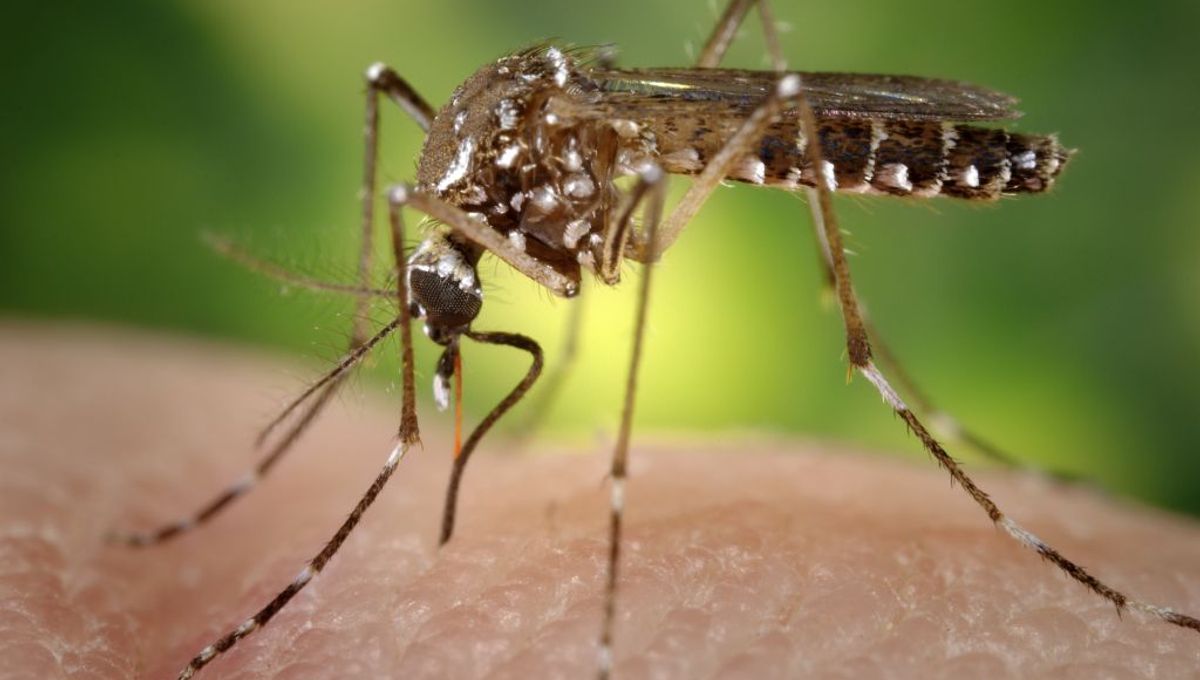
Cache Valley virus – a mosquito-borne infection that primarily affects sheep – may be more of a threat to humans in the US than previously thought, health officials report, possibly infecting up to 18 percent of the population.
In findings presented at the American Society of Tropical Medicine & Hygiene meeting, which have not yet been peer-reviewed, researchers describe the handful of cases that have occurred nationwide as well as a test that may help to detect it.
“We don’t know much about it, there’s only been seven documented cases,” Centers for Disease Control and Prevention (CDC) research microbiologist Amanda Calvert told HealthDay.
All seven individuals developed either a spinal cord infection called encephalitis or a brain infection called meningitis, and had preexisting conditions affecting their immune systems. Of these, three died while the other four had lasting effects.
However, the CDC suspect it may have infected up to 18 percent of people across the country.
What is Cache Valley virus?
Discovered in the Cache Valley area of Utah in 1956, the virus is mostly seen in sheep, and can also affect deer, cattle, and horses.
It is spread to people by infected mosquitoes and can cause an illness with fever or, as in the seven documented US cases, more severe disease such as encephalitis or meningitis.
In lambs, it causes stillbirths and birth defects; however, it remains unknown whether it has the same effect in humans, Calvert said.
Cache Valley virus isn’t contagious – you can’t catch it via coughing, sneezing, touching, or other contact with someone who is infected, only from a mosquito bite. It’s been found in many types of mosquitoes, but which are the main culprits for spreading the virus to humans is currently not known.
What are the symptoms?
Most people have mild symptoms or get none at all, Calvert said. But those that do may experience fever, headache, nausea, vomiting, fatigue, and sometimes a rash. If the infection develops into severe disease (meningitis or encephalitis), people may also report a stiff neck, confusion, loss of coordination, difficulty speaking, or seizures.
According to the CDC, symptoms can occur from a few days to two weeks after a mosquito bite, although an exact incubation period is not known.
Are there treatments?
At present, there are no medications to prevent or treat Cache Valley virus infection. Care generally consists of easing symptoms with painkillers, as well as getting lots of rest and fluids.
Fortunately, screening for infection may be about to improve, as the CDC has developed a new test to identify blood antibodies to the virus. It is currently being validated, but it is hoped that it could be made available to state health departments in the near future, Calvert explained. When this happens, it will give experts a better idea of whether the recent infections are anything to worry about.
“We don’t know much about it,” Calvert said. “So we don’t know yet if it is a growing public health threat, but everyone should always be mindful to protect themselves and their loved ones from mosquito and tick bites.”
How to protect yourself against Cache Valley virus
The only way to protect against Cache Valley virus is to prevent mosquito bites in the first place. To do this, the CDC recommend you: use insect repellent, wear loose-fitting, long-sleeved clothing, and try to keep mosquitoes out of the house by using screens or closing windows and doors.
Calvert added that people who are immunocompromised or taking immune-suppressing drugs should take extra care to protect themselves in the warmer months.
If you think you or a family member might have Cache Valley virus disease, the CDC advises you talk with your healthcare provider.
The research was presented Thursday at the American Society of Tropical Medicine & Hygiene meeting.
The content of this article is not intended to be a substitute for professional medical advice, diagnosis, or treatment. Always seek the advice of qualified health providers with questions you may have regarding medical conditions.
Source Link: Cache Valley: The Mosquito-Borne Virus That May Be Emerging In The US